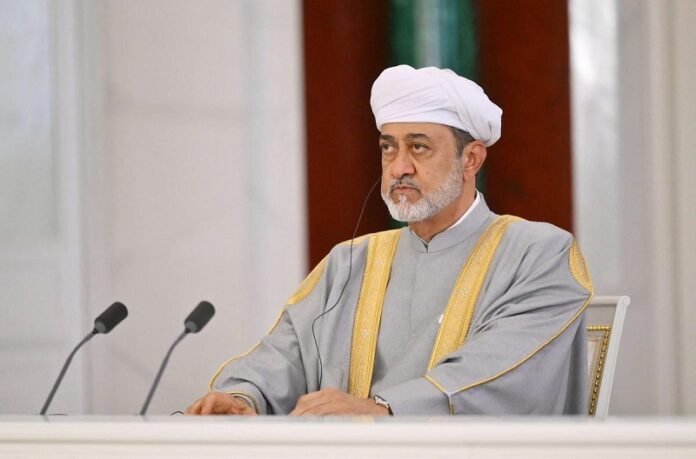As regional tensions rise and Algeria faces increasing isolation both regionally and internationally, the upcoming visit of Oman’s Sultan Haitham bin Tariq to Algiers on Sunday takes on a significance that extends far beyond protocol. While framed as a bilateral engagement to boost cooperation, the visit is shadowed by Muscat’s clear and consistent support for Morocco’s sovereignty over its southern provinces—a position that Algiers finds politically uncomfortable.
Algeria’s Outreach vs. Gulf Caution
Invited by President Abdelmadjid Tebboune, the Sultan’s visit marks Algeria’s latest attempt to re-engage with the Gulf Cooperation Council (GCC) states, following years of lukewarm or tense relations. Facing diplomatic turbulence with both Gulf and Western partners, Algeria now sees Oman as a potential gateway to reinvigorate ties and diversify its alliances.
Yet this outreach collides with a fundamental obstacle: the unwavering stance of Gulf countries—including Oman—on the Moroccan Sahara. Could Algiers be banking on Omani discretion in exchange for future strategic gains? Or will Oman’s consistent foreign policy override any Algerian expectations?
The Sahara Question: Unspoken Yet Unavoidable
Though Algerian officials are unlikely to publicly raise the issue of the Moroccan Sahara during the Sultan’s visit, the topic lingers in the background. Oman, like its GCC peers, has voiced clear support for Morocco’s territorial integrity and the autonomy plan proposed by Rabat as the only serious and credible basis for resolving the long-standing dispute.
This begs the question:
Can Algeria truly sideline the Sahara issue in its Gulf diplomacy, or is it an unavoidable test of sincerity and alignment?
A Fragile Gulf-Algeria Relationship
Historically, Algeria’s ties with the Gulf have swung between rapprochement and estrangement, shaped by divergent positions on major regional files. These include the Moroccan Sahara, the Libyan conflict, normalization with Israel, and broader geopolitical rivalries.
Notably, the UAE was the first to open a consulate in Laayoune, Southern Morocco, sparking criticism from Algiers, which continues to back the Polisario Front. Algeria also opposed the Abraham Accords signed by the UAE and Bahrain with Israel and condemned Morocco’s decision to normalize ties with Tel Aviv.
These moves have deepened the rift and underlined Algeria’s growing diplomatic disconnect within the Arab world.
Oman’s Consistent Position: Historical and Strategic
Unlike some actors who oscillate between neutrality and alliance, Oman has demonstrated consistency in its support for Morocco’s territorial claims. The Sultanate publicly endorsed the Green March in 1975 and has since reiterated its backing for the autonomy initiative as a realistic solution.
Oman has also lauded Morocco’s leadership under King Mohammed VI, particularly its contribution to African stability and peace, a sentiment reflected in joint statements and official visits.
A Visit Under the Lens of Strategic Realignment
Algeria hopes to leverage Oman’s neutrality and diplomatic pragmatism to re-enter Gulf diplomatic circuits. But can such outreach succeed without addressing the foundational disagreements, especially on the Sahara?
-
Will the visit spark a new era of pragmatic diplomacy, or merely serve as a symbolic gesture?
-
Can Algeria reconcile its regional positions with those of Gulf states, or will ideological rigidity continue to limit its reach?
Conclusion: A Carefully Calculated Visit, but to What End?
While the Sultan’s trip may not yield immediate policy shifts, its implications are clear:
Gulf states, including Oman, will not compromise on their recognition of Moroccan sovereignty over the Sahara. For Algeria, this is a reality check—either adapt diplomatically or remain on the fringes of Arab consensus.
Ultimately, the visit is more than ceremonial; it is a litmus test for Algeria’s willingness to engage with a rapidly evolving regional order, one in which the Moroccan Sahara is no longer up for debate.


